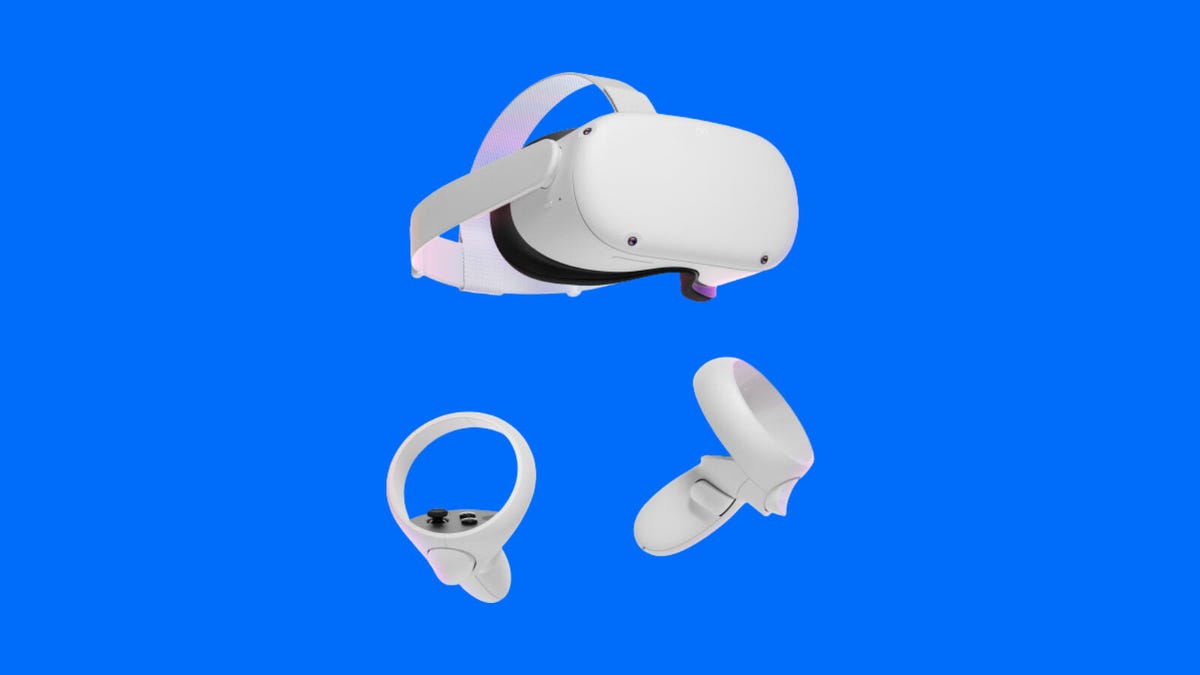Meta's Future Quest VR Headsets Will Use Custom Qualcomm Chips for Years
A new multiyear agreement focuses on VR headsets; no word on AR, though.

Meta's current Quest 2 VR headset uses Qualcomm chips. Future Quest headsets will, too.
We don't know a ton of details about Meta's next VR headset, expected this October, but we do know it'll feature a Qualcomm chip inside… and so will the company's headsets for years down the road.
Qualcomm CEO Cristiano Amon and Meta CEO Mark Zuckerberg announced the news during a press conference at Berlin's IFA tech show. Qualcomm's already made the chips in Meta's VR headsets going back to the Oculus Go, and announced a partnership with Microsoft to make next-gen chips for its future AR smart glasses January's CES in Las Vegas.
The Qualcomm partnership promises "multiple generations of premium devices and experiences powered by custom VR platforms in the years to come," according to a statement from Qualcomm.
In a comment from Mark Zuckerberg provided by Qualcomm, the partnership will bring "customized virtual reality chipsets -- powered by Snapdragon XR platforms and technology -- for our future roadmap of Quest products."
When asked for further comment on the partnership via email, a Qualcomm representative clarified that the new customized chips will be powered by Qualcomm's Snapdragon XR platform, but won't use Snapdragon Spaces, an AR software toolkit that Qualcomm's building to bridge phones and AR glasses. Instead, these future products will use Meta's Presence Platform for VR.
According to Qualcomm, the chips could show up in other, non-Meta devices, too. "The VR chipsets that are being designed as part of this collaboration are not exclusive to Meta, but we're excited to work together on a deeper engineering level that's a first for both companies. It's this type of collaboration that's foundational for the metaverse and we can't wait to show you what we'll build together."
Although Meta is working on future AR glasses of its own, Qualcomm hasn't confirmed any involvement in that part of Meta's metaverse roadmap: "At this time, we are strictly only talking about VR."

